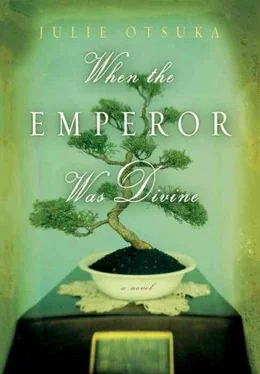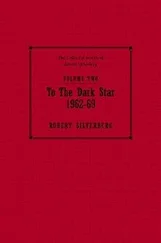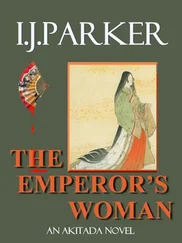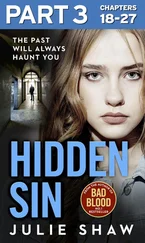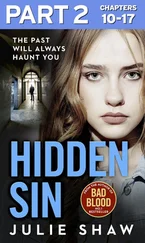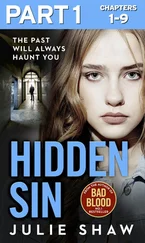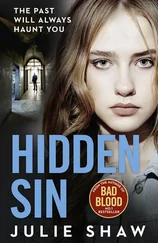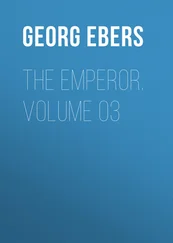ALWAYS, HE WOULD REMEMBER the dust. It was soft and white and chalky, like talcum powder. Only the alkaline made your skin burn. It made your nose bleed. It made your eyes sting. It took your voice away. The dust got into your shoes. Your hair. Your pants. Your mouth. Your bed.
Your dreams.
It seeped under doors and around the edges of windows and through the cracks in the walls.
And all day long, it seemed, his mother was always sweeping. Once in a while she would put down her broom and look at him. “What I wouldn’t give,” she’d say, “for my Electrolux.”
One evening, before he went to bed, he wrote his name in the dust across the top of the table. All through the night, while he slept, more dust blew through the walls.
By morning his name was gone.
HIS FATHER used to call him Little Guy. He called him Gum Drop, and Peanut, and Plum. “You’re my absolute numero uno,” he would say to him, and whenever the boy had woken up screaming from dark scary dreams his father had come into his room and sat down on the edge of his bed and smoothed down the boy’s short black hair. “Hush, Puppy,” he whispered, “it’s all right. Here I am.”
AT DUSK the sky turned blood red and his sister took him out walking along the outer edge of the barracks to watch the sun go down over the mountains. “Look. Look away. Look. Look away.” That, she told him, was the proper way to look at the sun. If you stared at it straight on for too long, you’d go blind.
In the darkening red twilight they would point out to each other the things that they saw: a dog chasing a porcupine, a tiny pink seashell, the husk of a beetle, a column of fire ants marching across the sand. If they were lucky they might see the Portuguese lady strolling along the fence with her husband, Sakamoto, or the lady with the white turban—she’d lost all her hair, they’d heard, overnight on the train—or the man with the withered arm who lived in Block 7. If they were very lucky, the man with the withered arm might even raise it—the arm—and wave to them.
ONE EVENING, while they were walking, the boy reached over and grabbed the girl’s arm. “What is it?” she asked him.
He tapped his wrist. “Time,” he said. “What time?”
She stopped and looked at her watch as though she had never seen it before. “It’s six o’clock,” she said.
Her watch had said six o’clock for weeks. She had stopped winding it the day they had stepped off the train.
“What do you think they’re doing back home?”
She looked at her watch one more time and then she stared up at the sky, as though she were thinking. “Right about now,” she said, “I bet they’re having a good time.” Then she started walking again.
And in his mind he could see it: the tree-lined streets at sundown, the dark green lawns, the sidewalks, boys throwing balls in backyards, girls playing hopscotch, mothers with pink quilted mitts sliding hot casseroles out of ovens, fathers with shiny black briefcases bursting through front doors, shouting, “Honey, I’m home! Honey, I’m home!”
When he thought of the world outside it was always six o’clock. A Wednesday or a Thursday. Dinnertime across America.
IN EARLY AUTUMN the farm recruiters arrived to sign up new workers, and the War Relocation Authority allowed many of the young men and women to go out and help harvest the crops. Some of them went north to Idaho to top sugar beets. Some went to Wyoming to pick potatoes. Some went to Tent City in Provo to pick peaches and pears and at the end of the season they came back wearing brand-new Florsheim shoes. Some came back wearing the same shoes they’d left in and swore they would never go out there again. They said they’d been shot at. Spat on. Refused entrance to the local diner. The movie theater. The dry goods store. They said the signs in the windows were the same wherever they went: NO JAPS ALLOWED. Life was easier, they said, on this side of the fence.
THE SHOES WERE black Oxfords. Men’s, size eight and a half, extra narrow. He took them out of his suitcase and slipped them over his hands and pressed his fingers into the smooth oval depressions left behind by his father’s toes and then he closed his eyes and sniffed the tips of his fingers.
Tonight they smelled like nothing.
The week before they had still smelled of his father but tonight the smell of his father was gone.
He wiped off the leather with his sleeve and put the shoes back into the suitcase. Outside it was dark and in the barrack windows there were lights on and figures moving behind curtains. He wondered what his father was doing right then. Getting ready for bed, maybe. Washing his face. Or brushing his teeth. Did they even have toothpaste in Lordsburg? He didn’t know. He’d have to write him and ask. He lay down on his cot and pulled up the blankets. He could hear his mother snoring softly in the darkness, and a lone coyote in the hills to the south, howling up at the moon. He wondered if you could see the same moon in Lordsburg, or London, or even in China, where all the men wore little black slippers. And he decided that you could, depending on the clouds.
“Same moon,” he whispered to himself, “same moon.”
ON NIGHTS when he couldn’t sleep he liked to think of the house they had left behind. He could still picture his old room very clearly: the One War One World map of the world on the wall, the Joe Palooka comic books spilling out from under the bed, the cowboy-and-Indian curtains his mother had sewn for him the summer before last, gently billowing in the breeze. He’d look out the window and see his father down below in the yard, plucking the caterpillars one by one off the snow pea plants with his long wooden chopsticks. He’d see the stone lantern covered with moss in the garden, and the statue of the fat round Buddha with its head thrust back, laughing up at the sky. He’d see his red Schwinn with the wide balloon tires leaning against the porch and on a good day he’d see Elizabeth Morgana Roosevelt on the other side of the white picket fence, playing with her little dog in the sun.
ELIZABETH HAD LONG YELLOW HAIR and a Pekinese dog named Lotus and was not related to the president in any way. The day before they left she had come to the house and given him her lucky blue stone from the sea. It was smooth and round and hard, like a bird’s egg. Or a perfect blue eye. “When you come back,” she said, “we’ll go to the beach.”
He had slipped the blue stone into his pocket and taken it with him to the assembly center at the Tanforan racetrack. Every night, in the horse stalls, he had slept with it under his pillow. At the end of the summer, when they were ordered to move inland, he had brought it with him on the train to Utah. He had promised to write her a letter the minute he got off the train.
THEY HAD BEEN off the train for a while now, but he had not written her a word. Still, her letters continued to arrive in the mail. She was the only one of his friends from before who had remembered to write. She told him about the blackouts in Berkeley, and the shortages of meat and butter. She said that her father was now an Air Raid Warden, and that her mother no longer wore silk stockings. She said that Greg Myer’s brother had been shot down in the Battle of the Coral Sea and there was now a gleaming gold star in the Myers’ front window. She told him she’d seen some Okies from the shipyard downtown, standing in line at the movies. They really did wear cowboy boots, she said. And she sent him things. A picture of a prancing stallion she’d seen at the Navy Relief Horse Show. A book of riddles. A tulip bulb, which he had named Gloria and planted inside of an old rusty peach can he had found behind the mess hall.
He wondered if Gloria was still alive, down there, beneath all that dirt—“Tamp it down, hard,” his sister had said—and if she was, would she be able to make it to spring?
Читать дальше
